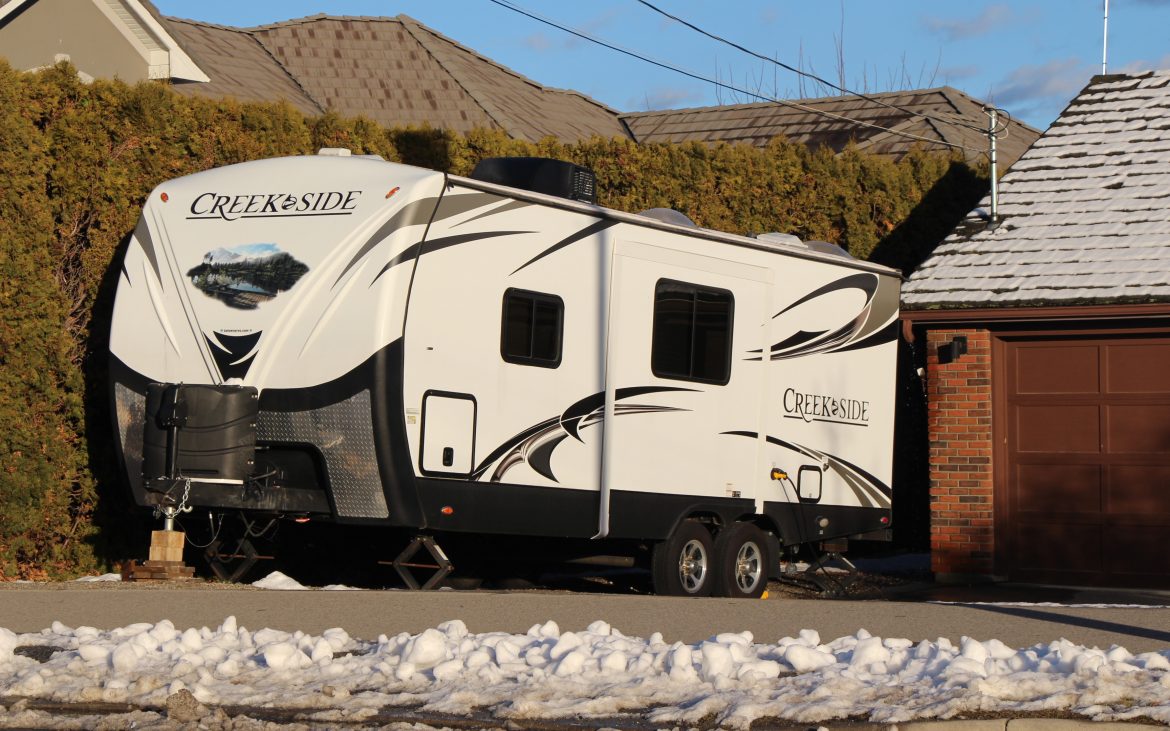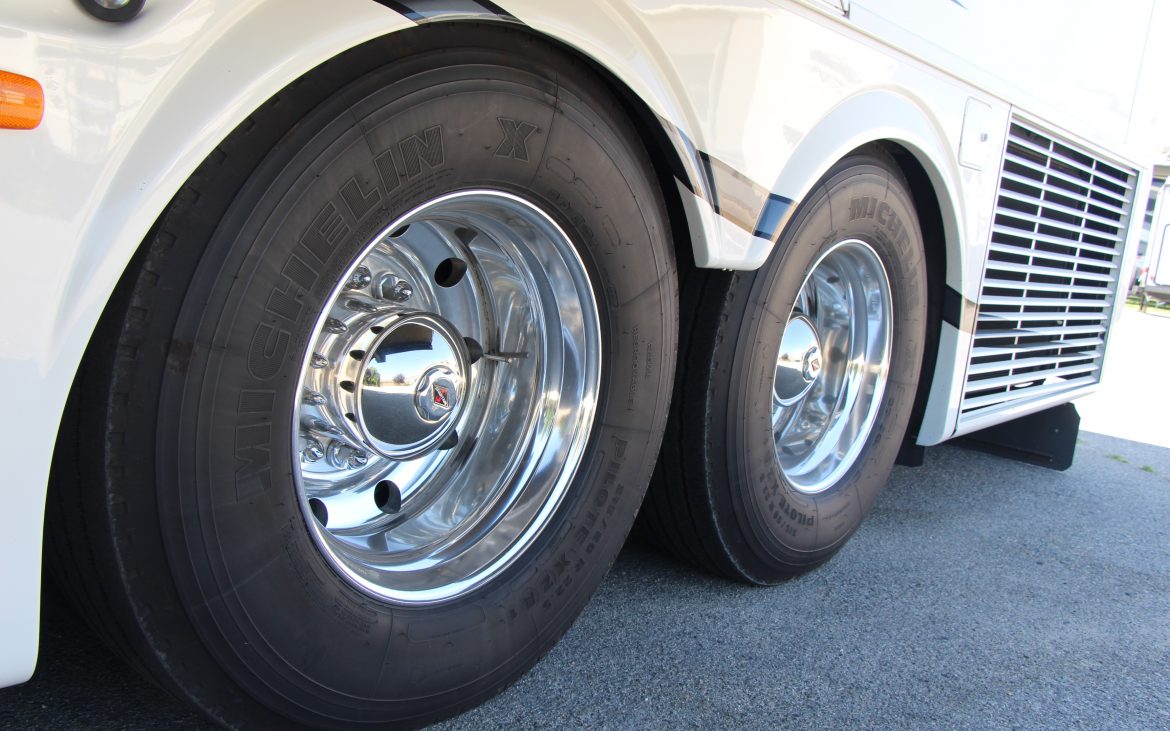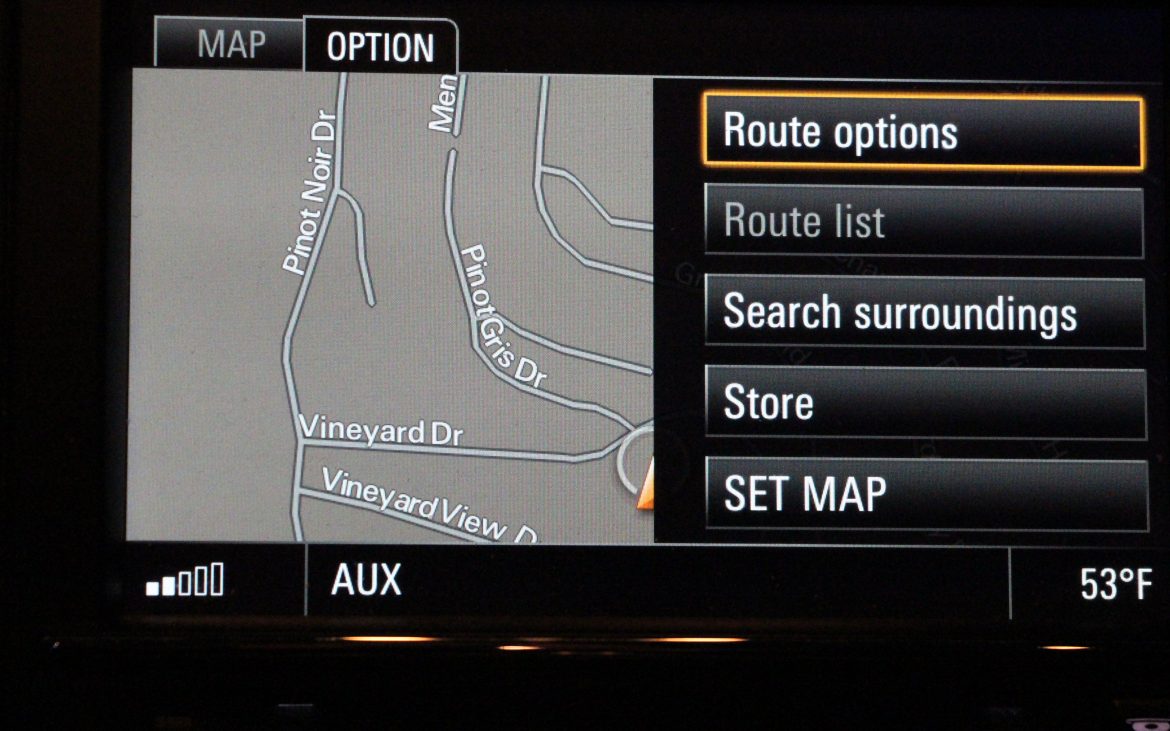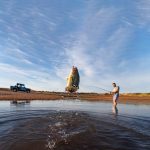The days are getting longer and warmer, and the travel outlook is improving every week. It’s time to think about getting the RV out of winter storage and ready for another season. You probably know all about the most common spring RV chores, so let’s look at some items that often don’t get addressed at this time of the year.

Photo: Peter Mercer
Keep Rodents at Bay
Stored RVs offer a ready-made home for mice and other critters. A thorough inspection should be made to determine if any such stowaways are present. Evidence of mouse droppings can normally be found in drawers and cupboards as well as areas within lower compartments. In addition to the obvious health hazards, rodents can cause serious damage to an RV’s wiring bundles and insulation. You’ll find a variety of remedies available to rid your vehicle of these pests quickly. It is far easier to deal with this during spring start-up rather than later when you are inhabiting the RV.
Ban Bugs
Dormant recreational vehicles during their off-season layup can become a home to spiders and other creepy crawlies. Running around with a bug spray aerosol will not get the job done, as they shelter in cracks and crevices. To effectively eradicate them requires a strategy like bug-fog bombs that fully discharge in a fog-like once triggered. This solution requires several cans, depending on the size of the RV. Bombs should be placed within the coach and in the basement storage bins and lockers. Once each has been triggered, exit and close up the unit. After four hours, or as indicated by the product manufacturer, open and air out the entire RV. Doing this after a spring layup is ideal, as there are no foods or personal items present.

Photo: Peter Mercer
Top Up Tire Pressure
Checking the tire pressures seems like a common task when putting your RV back on the road for a new season. However, many people surprisingly assume that the tires are fine because they looked good and were under the proper pressure when put into storage. The fact is, tires lose pressure constantly. This is due to the extremely small size of oxygen molecules and their ability to pass through the tire’s casing over time.
Update the Global Position System

Peter Mercer
GPS databases require an update to encompass any changes in routes, road construction, road closures and new services. Updates are generally available from GPS distributors and manufacturers and may be offered without charge, depending on the make.
Use RV Fuel Additives
Today’s gas-powered vehicles really do not require any fuel additives. While that holds true for most, it does not necessarily apply to recreation vehicles. The winter layup has little effect on the engine. However, the same can not be said for the gasoline in the fuel tank and system. Gasoline, unlike diesel fuel, has a short shelf life before it starts degrading. This degradation can start within three to six months, while any ethanol present can start losing its combustibility as early as one month. There are stabilizing additives that can help improve the performance of stale gas. Additionally, the benefits of a bottle of injector cleaner cannot be overstated, even with a carburetor-equipped motor. Fuel additives can be found at local automotive stores.
Lubricate External Moving Parts
External moving mechanical items such as folding access steps tend to not operate as smoothly as they should following a long period of inactivity. This is due mainly to environmental exposure. Cleaning any rust and debris from the hinge areas and the use of a suitable dry lubricant can have them operating as they should for another season.
Check Power Door Lock Hinge Contacts

Getty Images
For most coaches equipped with power door locks, there are several spring-loaded electrical contacts located in the door hinge. These contacts can be prone to fail to conduct the required power when they start to oxidize. Oxidization of these can form, especially during lack of use, such as winter storage time. This oxidization can quickly and easily be removed using some fine emery cloth.
Test the Electrical Inverter (if applicable)
Testing the operation of the inverter well before heading out to camp is a good idea. If there are any issues, now is the time to know and correct them. Some RVs need AC power to operate their refrigerator and even their power awnings. So let’s be sure the inverter is doing what inverters are supposed to be doing.
Well, these are just a few things you might want to add to your spring RV awakening time. Of course, you can do more, perhaps check the functioning of as many components and systems as you are capable. After all, now is the time to find and fix any potential issues. Not when you are enjoying a warm summer day in a picture-perfect park.
And yes, “A bad day of RVing is still better than a good day at work!”
Peter Mercer — With Some Springtime Tips




